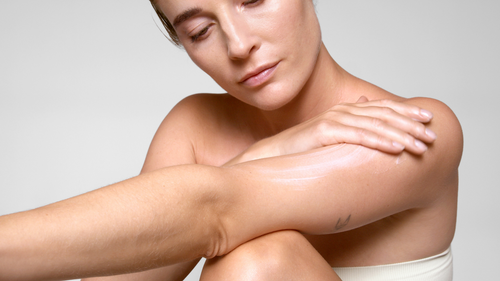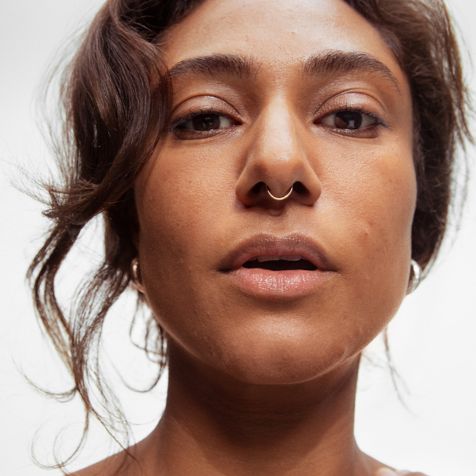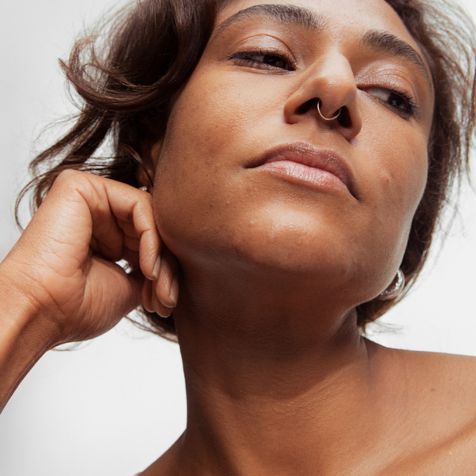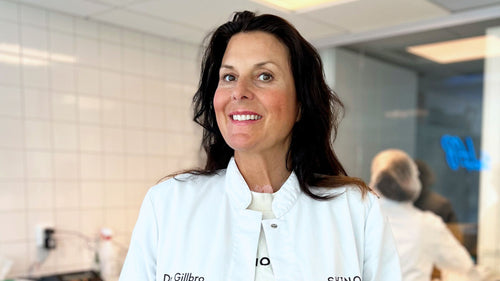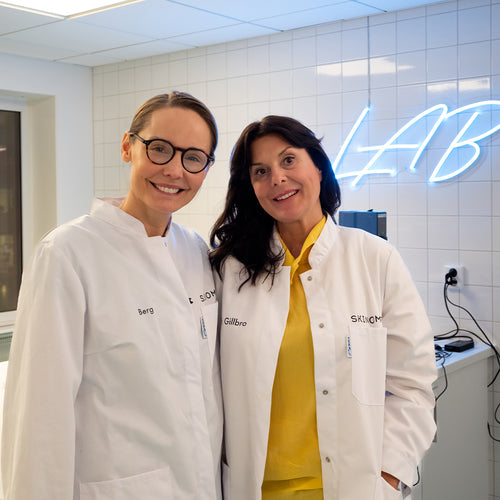Premenstrual syndrome is caused by a combination of hormonal changes, chemical changes in the brain, lifestyle factors, genetics and possibly inflammation. Hormonal fluctuations, especially in estrogen and progesterone after ovulation, are thought to be a primary driver of PMS symptoms. These hormonal changes can affect serotonin, a neurotransmitter that regulates mood, leading to the emotional symptoms of PMS. In addition, genetic factors and lifestyle choices such as diet and stress levels can affect the severity of PMS.
How PMS affects the skin
During the premenstrual phase, the sebaceous glands can be affected by fluctuations in hormone levels, especially androgens, such as testosterone. Although androgens are typically classified as male hormones, they are also found in women and play a role in skin health, including the regulation of sebum production.
During the menstrual cycle, especially during the luteal phase, hormone levels fluctuate. While estrogen and progesterone levels rise and fall, the relative effects of androgens may become more prominent. This can lead to increased sebum production, which contributes to breakouts of acne or oily skin, which some women experience as part of their PMS symptoms.
Common skin problems during PMS
Acne: Increased sebum production can lead to acne, especially around the jawline and on the chin.
Rashes: Hormonal changes can cause rashes or worsening if you are prone to eczema.
Increased sensitivity: The skin may become more sensitive, making it more prone to irritation.
Redness and swelling: Hormonal fluctuations can cause inflammation, which can result in redness and swelling.
Management of skin problems during PMS
Gentle cleaning:
Use mild cleaning products. Both Mineral cleanser and Sensitive cleanser work great as a cleanser during PMS.
Moisturizing:
Increase the use of moisturizer to combat dryness. If you have acne-prone skin and easily get pimples during PMS, we mainly recommend our lighter emulsions: Light Emulsion and Rich Emulsion
Acne treatment:
Products with zinc, retinol and niacinamide can help, as can consulting a dermatologist for more severe cases. Night active control works great as a spot treatment during the PMS period.
Diet and lifestyle factors can also affect the severity of PMS and skin-related problems. More on this in Part 2.

